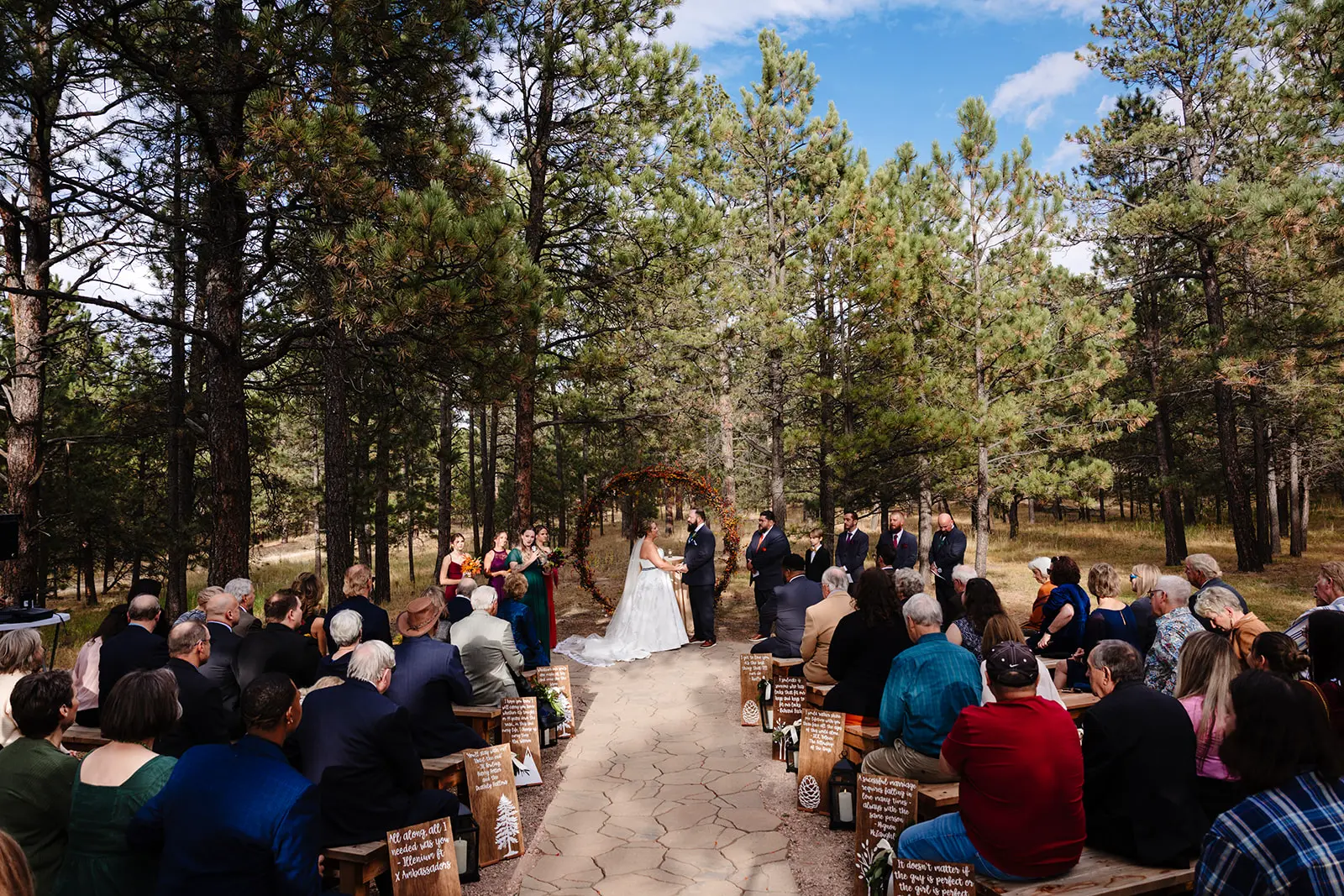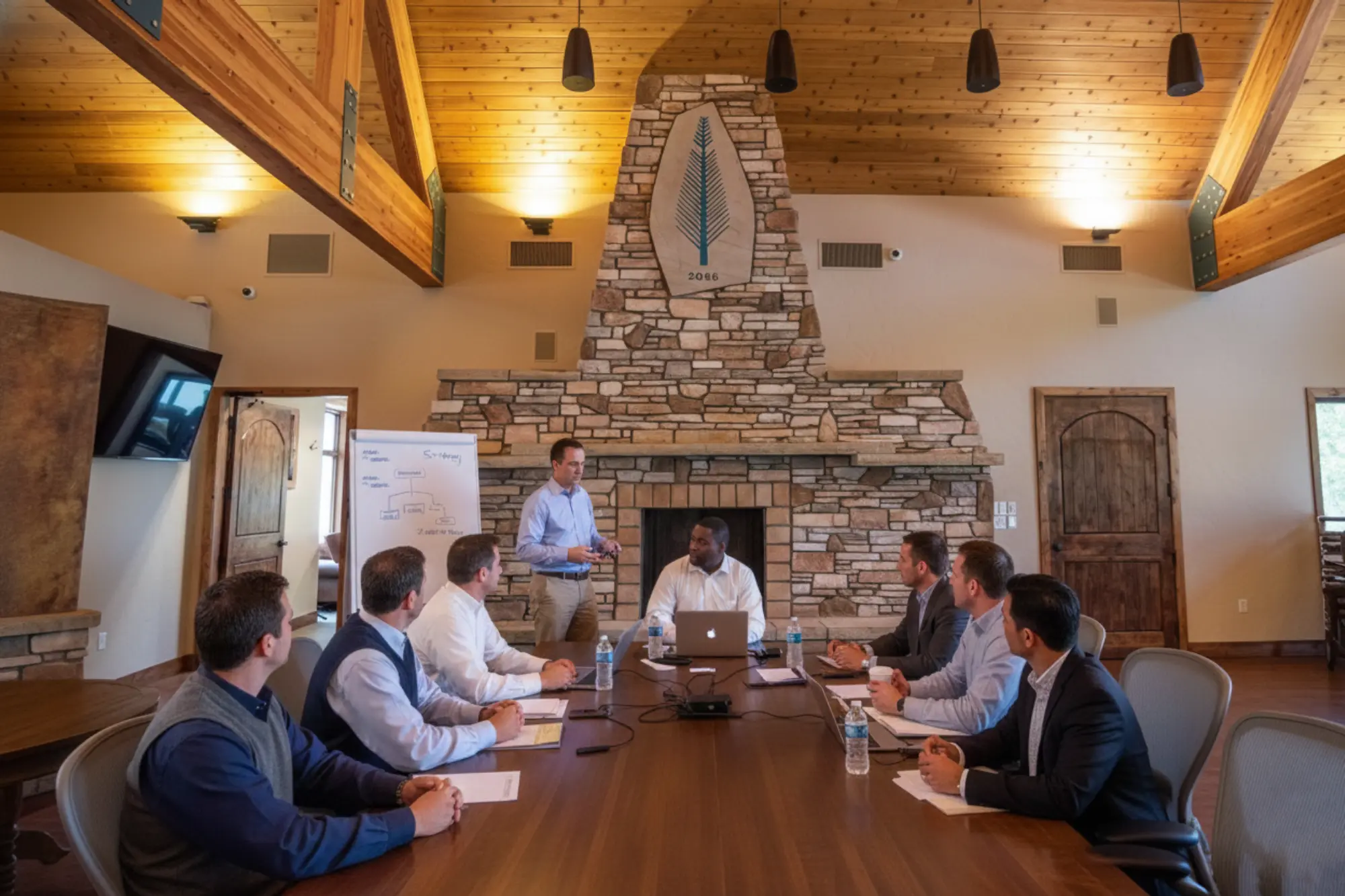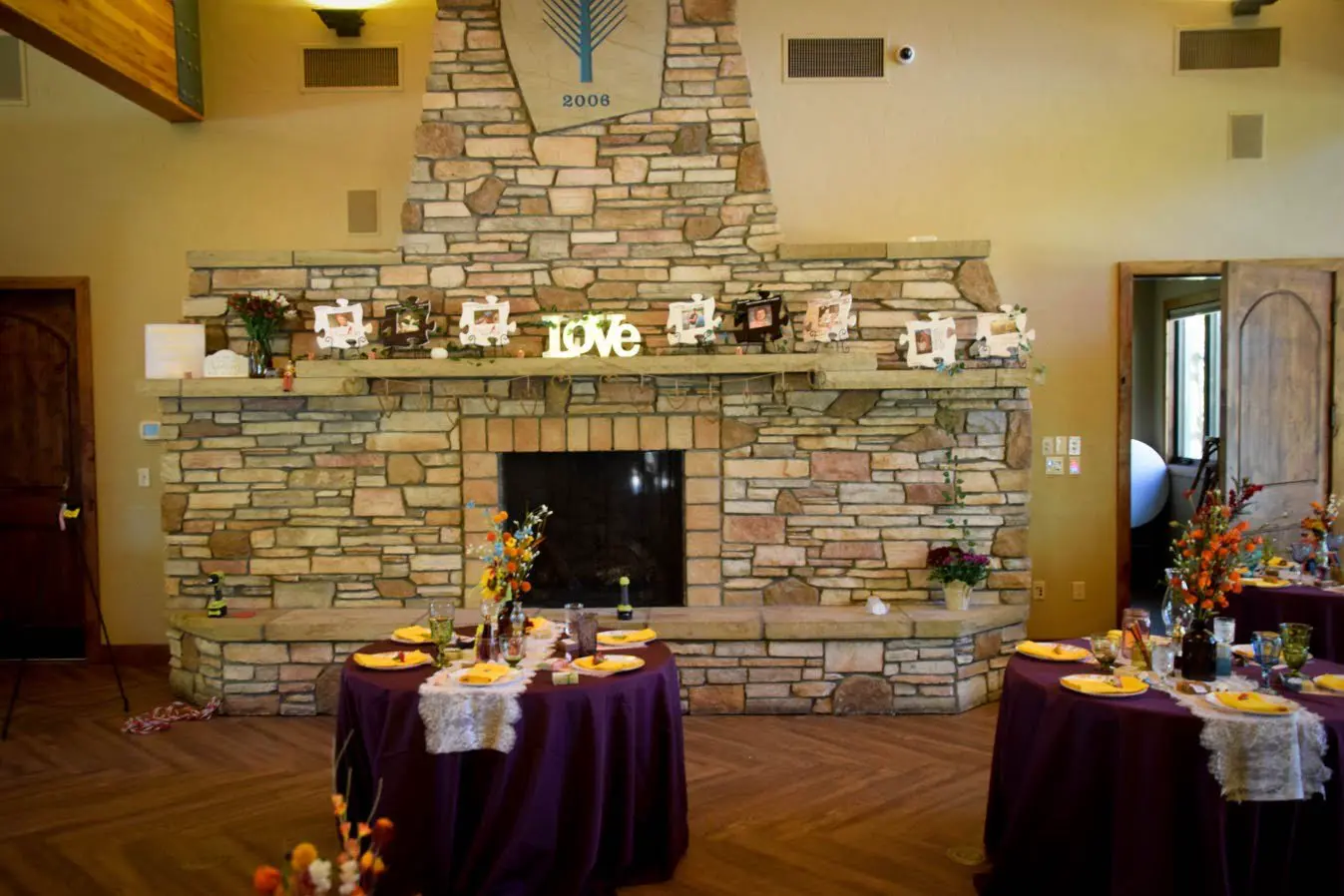Your wedding venue has a tremendous amount of importance to a wedding, making it one of the most significant decisions you’ll make. Yet many couples leave venue tours with stunning photos but crucial questions unanswered, only to discover costly surprises or deal-breaking restrictions later in the planning process.
The difference between finding your perfect venue and settling for a problematic one often comes down to asking the right questions during your site tour. With some venues booking up to 12-18 months in advance and peak season dates disappearing quickly, you can’t afford to waste time on venues that won’t work for your vision or budget.
This post provides you with essential question to ask when visiting a wedding venue, organized by category to ensure you gather all the critical information needed to make an informed decision. Whether you’re touring your first potential venue or your tenth, these questions will help you evaluate each location thoroughly and avoid costly oversights.
Pre-Visit Questions to Ask by Phone or Email
Before scheduling your venue tours, save valuable time by asking key questions over the phone or via email. This initial screening helps you eliminate venues that won’t work for your specific needs and ensures you only visit locations that could genuinely be the right fit.
Start with specific availability inquiries rather than general requests. Instead of asking “Are you available in September 2024?” ask “Are you available on September 15, 2024, or the weekend of September 21-22?” This approach demonstrates seriousness and helps venues provide more accurate information quickly.
Ask about guest capacity for different configurations. Many venues state maximum capacity but don’t specify whether that’s for seated dinner service or cocktail-style reception. Request specific numbers: “How many guests can you accommodate indoors and outdoors?”
Request initial pricing breakdown including rental fees, food and beverage minimums, service charges, taxes, and any major restrictions. While our wedding venue is different, most venues have food and beverage minimums ranging from $75-150 per person for full service, with additional service charges of 18-22% and taxes of 6-9%. Getting these baseline numbers upfront prevents wasting time on venues outside your budget range.
Confirm ceremony and reception capabilities. Ask directly: “Can you host both our wedding ceremony and reception on-site?” Some venues only offer reception space or charge additional fees for ceremony areas. Multi-use venues are highly desirable for guest convenience but may command premium pricing.
Inquire about the venue tour structure. Most venue tours include walkthroughs of ceremony spaces, reception areas, bridal suites, and photo locations, plus Q&A time with the venue staff. Ask whether tours are group sessions with other couples or private appointments, as private tours allow for more detailed discussions about your specific needs.
Essential Venue Details and Logistics
During your actual venue visit, these logistical questions will help you understand exactly what you’re getting and identify potential complications before they become problems.
Clarify rental duration specifics. Most full-day wedding bookings span 8-12 hours, including setup and breakdown time, but this varies significantly. Ask: “How many hours are included in our rental, and what are the overtime charges?” Overtime rates for some venues can range from $200-500 per hour, so understanding these boundaries is crucial for budget planning.
Verify capacity for your specific setup needs. The venue’s capacity can change dramatically based on your event layout. Ask to see floor plans or examples showing different guest counts with various configurations.
Understand multiple event policies. Many venues host more than one wedding per day, especially during peak season. Ask: “How many weddings do you host on the same day, and how do you manage guest flow and privacy?” Inquire about physical barriers, noise management between events, separate entrances, and dedicated staff assignments for each wedding party.
Discuss backup plans for inclement weather. If you’re considering outdoor ceremony or reception spaces, this question is non-negotiable. Ask about tent rental options (typically $2,000-$10,000), indoor alternative spaces, and the decision-making timeline. “When do we need to make the final call about moving indoors—24 hours prior or the morning of the wedding day?”
Verify ADA accessibility compliance. Ask specifically about wheelchair accessibility, including ramp access, elevator availability, accessible restrooms, and designated parking spaces. While commercial venues must meet ADA standards, some historic sites or private estates may have limited accessibility options.
Confirm secure storage options. Wedding gifts and personal items need protection throughout your entire event. Ask: “What secure storage do you provide for wedding gifts and the bridal party’s personal belongings?” Most reputable venues offer locked offices or supervised storage areas, as unattended gifts are a common source of post-wedding losses.
Financial Questions and Contract Terms
Money matters require detailed discussion, as wedding venue contracts involve significant financial commitments with complex terms that can dramatically affect your total investment.
Request comprehensive fee breakdowns covering every potential charge. Ask for line-item costs including venue rental, catering, alcohol service, mandatory service charges, taxes, overtime fees, setup changes, damage deposits, and any additional vendor fees. Service charges typically add 18-22% to your food and beverage costs, while taxes can add another 6-9%.
Understand deposit requirements and payment schedule. Most venues require 25-50% of the anticipated total cost as a deposit, often split between a non-refundable booking fee and additional payments due 30-60 days before your wedding date. Ask: “What’s the complete payment schedule, and which portions are refundable under different circumstances?”
Clarify cancellation and refund policies thoroughly, especially regarding force majeure events like pandemics, natural disasters, or government shutdowns. Recent years have highlighted the importance of flexible policies. Ask: “What refund options do you offer for cancellations due to circumstances beyond our control?” Some venues offer future credit rather than cash refunds.
Inquire about seasonal and day-of-week pricing variations. Saturday evenings during peak season (May-October) command the highest rates, while weekday events or off-peak seasons may offer 20-30% discounts. Request detailed seasonal pricing tables in writing to understand your options for potential cost savings.
Verify liability insurance requirements. Most venues require either venue-provided coverage or client-purchased policies. Ask: “What liability insurance is required, and do you provide it, or do we need to purchase our own policy?” Some venues also require insurance certificates from all vendors.
Understand package deals and restrictions. Many venues offer wedding packages bundling rental, coordination, decor, and sometimes catering or vendor discounts. While these can provide 10-20% savings and simplify planning, ask: “What exactly is included in each package, and what customization restrictions apply?”
Food, Beverage, and Catering Policies
Catering represents a significant portion of your wedding budget, and venue policies in this area can dramatically affect both your costs and menu options.
Determine catering policy structure. Ask directly: “Do you require use of your in house caterer, or can we bring our own caterer?” Venues with exclusive in-house catering teams simplify logistics but may increase costs and limit menu flexibility. If the venue allows outside caterers, ask about any restrictions, additional fees, or preferred vendor lists.
Clarify food and beverage minimums. Most full-service venues have per-person spending requirements ranging from $75-150 for dinner service. Ask: “What are your food and beverage minimums for our date and guest count, and what happens if we don’t meet them?” Some venues charge the minimum regardless of actual consumption.
Understand alcohol policies and costs. Beverage service varies widely between venues. Ask about BYOB options, corkage fees (typically $15-35 per wine bottle), restrictions on hard liquor, and whether licensed bartenders are required. Some venues offer house-provided bar services with markup, while others allow you to supply your own alcohol with service fees.
Assess kitchen facilities for outside caterers. If you’re considering bringing your own caterer, the venue’s kitchen capabilities matter significantly. Ask: “What kitchen facilities are available—full prep kitchen, warming kitchen only, or just refrigeration?” High-end caterers need adequate space for food preparation, plating, and storage.
Inquire about cake policies and cutting fees. Many venues allow outside bakery cakes but charge cake cutting fees of $2-5 per slice. Ask: “Can we bring our own wedding cake, and are there any associated fees?” Some venues include dessert service in their packages, which might influence your bakery decisions.
Request menu tasting opportunities. Professional venues typically offer menu tastings, either complimentary for booked clients or for a fee ($25-100 per additional person). Ask: “When can we schedule a menu tasting, and what’s included?” This is crucial for evaluating food quality and finalizing menu selections.
Discuss dietary restrictions and special meal accommodations. With increasing dietary awareness, ask: “How do you handle vegetarian, vegan, gluten-free, kosher, or other dietary restrictions?” Ensure the venue can accommodate your guests’ needs without significant additional costs or complications.
Vendor and Setup Requirements
Understanding vendor policies and setup logistics prevents last-minute complications and helps you budget accurately for additional services and requirements.
Ask about preferred vendors versus open vendor policies. Some venues maintain lists of preferred vendors with established relationships and insurance requirements, while others allow complete freedom in vendor selection. Ask: “Do you require use of preferred vendors, or can we hire anyone?” Preferred vendor requirements might limit choices but often ensure quality and proper insurance coverage.
Clarify vendor setup times and access restrictions. Most vendors need 2-4 hours for setup before your event begins, but venue availability varies. Ask: “What time can vendors begin setup, and are there any restrictions based on other events?” High-demand venues may tightly control access times, potentially requiring day-before setup for complex decor or AV installations.
Verify loading dock and elevator access. For urban venues or multi-story locations, ask: “What loading and elevator access is available for vendor deliveries?” Limited access can increase setup time and labor costs, especially for catering, floral, and equipment delivals.
Understand vendor insurance requirements. Nearly all professional venues require liability insurance certificates from vendors, typically $1-2 million coverage. Ask: “What insurance requirements do our vendors need to meet?” This affects which vendors you can hire and may impact pricing.
Assess sound system and AV capabilities. Ask about existing sound systems, microphone availability, and electrical capacity for dj or live band equipment. “What sound system do you provide, and what electrical capacity is available for additional AV equipment?” Some venues offer in-house AV packages, while others require outside rentals.
Inquire about coordination services included. Many venues provide some level of coordination, from basic day-of management to full wedding planning services. Ask: “What coordination services are included with our rental, and what additional planning support do you offer?” This significantly affects whether you need to hire an independent wedding planner.
Clarify breakdown timelines and overtime policies. Understanding end-of-event logistics prevents costly overruns. Ask: “What time must breakdown be completed, and what are the fees for extended vendor access?” Some venues allow overnight breakdown for an additional fee, while others require immediate removal.
Decor and Ambiance Restrictions
Venue decoration policies can significantly impact your wedding vision and budget, making these questions essential for couples with specific aesthetic goals.
Ask about open flame and candle policies. Fire safety regulations vary, but many venues restrict or prohibit open flames entirely. Ask: “What are your policies regarding candles, and do you allow open flames or only battery-operated alternatives?” Some venues permit candles only in hurricane globes or enclosed containers.
Inquire about hanging decorations and structural modifications. Ceiling treatments, wall draping, and hanging installations require specific approval. Ask: “What restrictions exist for hanging decorations, and are there approved mounting points?” Some venues prohibit anything attached to walls or ceilings, while others have designated rigging points.
Understand included furniture and decor. Most venues provide basic furniture (tables, standard chairs, basic linens) in their rental fee. Ask: “What furniture and decor items are included, and what would we need to rent separately?” Specialty items like chiavari chairs, farm tables, or upgraded linens often incur additional costs.
Clarify dance floor availability and sizing. Not all venues include dance floors in their rental packages. Ask: “Is a dance floor included, and what sizes are available?” Standard dance floors range from 15×15 to 20×20 feet, with rental costs typically $300-800 if not included.
Discuss uplighting and specialty lighting options. Ambiance lighting can transform a venue’s atmosphere. Ask: “What electrical access exists for uplighting, and do you offer in-house lighting packages?” Some venues have built-in lighting systems, while others require external rentals and setup.
Verify noise restrictions and music curfews. Local ordinances often impose sound limits and cutoff times. Ask: “What noise restrictions and music curfews apply to our venue?” Outdoor venues typically have earlier curfews (9-11 PM) than indoor spaces, with potential fines for violations ranging from $100-$1,000.
Practical Amenities and Guest Services
These practical considerations significantly impact your guests’ experience and can affect your overall wedding day logistics and costs.
Assess parking situation and guest fees. Adequate parking is essential for guest convenience. Ask: “How many parking spaces are available, and are there any guest fees?” Urban venues often charge $5-20 per vehicle or offer only valet parking, while suburban locations typically provide complimentary self-parking.
Inquire about bridal suite and getting-ready spaces. Most couples want dedicated preparation space for the wedding party. Ask: “What bridal suite or getting-ready rooms do you provide, and what time can we access them?” Typical access begins 2-4 hours before the ceremony, with varying amenities and space sizes.
Verify guest accessibility and transportation options. Consider your guests’ needs regarding hotel proximity, public transportation, and ride-share accessibility. Ask: “What hotels are nearby, and how accessible is your venue via public transportation or ride-sharing services?” This information helps guests plan their attendance.
Ask about signage and wayfinding support. Large or multi-use venues can confuse guests unfamiliar with the layout. Ask: “What signage do you provide for guest direction, and will venue staff be available to guide guests?” This reduces confusion and improves the overall guest experience.
Understand seasonal amenities like coat check. For winter weddings or regions with variable weather, ask: “Do you provide coat check service, and is there an additional fee?” Some venues include this service, while others charge separately or require you to arrange coverage.
Inquire about security services and staff presence. Venue security varies from none at private estates to mandatory at urban locations. Ask: “What security measures are in place, and what venue staff will be present during our entire event?” Professional venues typically provide banquet managers and support staff throughout the event.
Final Planning and Day-of Coordination
Understanding end-stage planning requirements and day-of logistics ensures smooth execution and helps you prepare for final deadlines and decisions.
Clarify final headcount and payment deadlines. Most venues require final guest count confirmation 1-2 weeks before your wedding date, which affects catering orders and final costs. Ask: “When is the final headcount due, and when is final payment required?” Typical final payment deadlines are 30 days before the wedding date.
Ask about rehearsal access and associated costs. Wedding rehearsals help ensure smooth ceremony execution. Ask: “What rehearsal access do you provide, and are there any associated fees?” Some venues offer complimentary rehearsal time, while others charge $100-500 or limit access to specific time slots.
Confirm your main point of contact throughout planning. Venue staff transitions can disrupt communication flow. Ask: “Who will be our primary contact during planning, and will that person be present on our wedding day?” Some venues transfer couples from sales staff to operations managers after booking.
Inquire about pre-wedding vendor walkthroughs. Coordination between your vendors and venue staff prevents day-of complications. Ask: “Can we schedule a pre-wedding walkthrough with our key vendors?” This allows everyone to discuss logistics, setup requirements, and timeline coordination.
Understand day-of coordination scope and emergency procedures. Venue-provided coordination varies significantly in scope and availability. Ask: “What day-of coordination services do you provide, and who handles emergencies or unexpected issues?” Ensure someone knowledgeable will be available throughout your entire event.
Verify final payment processing and contract completion. Understanding final payment methods and contract requirements prevents last-minute complications. Ask: “What payment methods do you accept for final payment, and what documentation do we need to bring?” Some venues require certified checks or wire transfers for final payments.
Making Your Perfect Match
Visiting wedding venues can feel overwhelming, but asking these comprehensive questions transforms your venue tours from casual visits into strategic evaluation sessions. The perfect venue for your wedding day is one that not only looks beautiful but also aligns with your budget, accommodates your guest list comfortably, and supports your vision without unnecessary restrictions or hidden costs.
Remember that the most expensive venue isn’t always the best choice, and the most beautiful space might not be practical for your specific needs. Focus on venues that answer your questions transparently, provide detailed written information, and demonstrate genuine interest in making your wedding day successful.
Use this question framework during every venue tour to ensure you gather all essential information for an informed decision. Take detailed notes, ask for clarification on anything unclear, and don’t hesitate to follow up with additional questions after your visit. Your future self will thank you for the thorough preparation when you’re planning your big day at the venue that truly fits your vision and budget.
The venue you choose will be the backdrop for one of the most important days of your life, make sure it’s the right one by asking the right questions from the very beginning.



